The Ireland team has won the World Medical Football Championships in Vienna. A global event with 1,100 physicians from 24 countries, Ireland emerged victorious from a gruelling week-long event, winning all six of their games against such luminaries as Brazil, Spain and, in the final, reigning champions Britain.
The tournament itself has been running for over 25 years. It originated in Barcelona, founded by Dr Ferran Morrell, who envisioned bringing like-minded doctors together from all over the world to play football and learn from each other. There is a concurrent medical conference focusing on sports medicine and the benefits of exercise.
In a bid to encourage doctors to stay involved in football for longer, Dr Morrell introduced a key rule that sets the tournament apart – each team must always have two players over 35 years of age and two players over 40 on the pitch at all times. Thus, doctors just beginning their careers can play alongside more established physicians, which is a great asset to the event.
The other element specific to this tournament is that there are unlimited substitutions from one’s squad, which can contain up to 25 players. This is necessary as playing six full 11-a-side matches in seven days is no joke – it is extremely demanding, especially in continental heat reaching 30o.
Ireland first attended the event in 2015, travelling to Long Beach, California, and reaching the quarter-finals there. Vienna marked the sixth time Ireland had participated and the first time we advanced past the last eight. The team was founded by a group of doctors involved with what was then St Vincent’s FC (now Dublin Hospitals FC), namely: Nathan Wall; Andrew Delany; Ronan McDermott; Tommy Fitzgerald; Aidan McGrath; and John Frizelle. St Vincent’s FC was a Leinster Senior League club set up by Dr John Seery. Many physicians have come and gone since that first adventure, all building to this year’s success.
Prior to travelling to Austria, the Irish team were very fortunate to avail of the talents of the University College Dublin (UCD) League of Ireland coaching team in Willie O’Connor and Rob Murray. They came up with a plan to maximise our talents within the context of the event structure of six games in seven days. We were well drilled in coaching sessions in UCD in the months preceding the tournament. Willie and Rob were also kind enough to travel with us (and ensure we did what we were supposed to!). They deserve a lot of credit for our success.
Like many Irish football teams before us, we were drawn in the group of death in Vienna. The tournament follows the structure of the World Cup, with three group games, followed by three knock-out stages. There are 24 teams in total, with six groups of four teams. Our group contained the US and two multiple former tournament winners in Hungary and Brazil.
US
Our first game pitted us against the US. All the players were tense beforehand, knowing that a win in the first game put them in an excellent position to progress, whereas a loss could potentially mean their week was over before it began. But Ireland got off to the best possible start, with Waterford Geriatrician Michael Nugent on hand to turn home Radiologist Brian Gaffney’s precise square ball. We made the classic mistake of sitting back and inviting the Americans onto us and eventually their pressure told, as Kerry GP and goalkeeper Padraic McCarthy bundled over an oncoming attacker to concede a penalty, which he then spectacularly saved – the first of many in the week to come. But shortly afterwards the Americans bundled a ball home from a quick throw and low driven ball into the box. However, Ireland rose to the challenge and showed a strength of character that would be evident throughout the tournament. We battled our way back on top with hospital doctor Oisin Pennycook returning from injury to torment the US defence. It was a typically incisive run into the box from Nugent that yielded a penalty to us, dispatched by Gaffney, who celebrated with a somewhat awkward tribute to Robbie Keane. The game was ours when Ophthalmologist Dave Gildea somehow forced home a far post corner despite the laws of physics’ best efforts to make it impossible. It could be described as a flying reverse scorpion kick.
Hungary
Our second game was against the Hungarians, who had won the event three times in the past. Many of the squad felt they were our toughest opponents, technically gifted, and weren’t afraid to tackle. But in what was a very tough match, Ireland shone, resisting all attacks while devising ingenious ones of our own. We won 2-0, both goals from Gastroenterologist Fionn Nally. The first saw him collect a superb lofted pass from Gaffney, then chip the oncoming keeper with admirable calm. With the game in the balance, McCarthy stepped up again and stopped another penalty. Then Nally seized on a breaking ball to end the Hungarian hopes.
Brazil
With qualification likely assured, we faced the mighty Brazil in our last group game. From the outset, they tried to rattle us, delaying the anthems by making us wait. Dangerous tackles flew in as the desperate Brazilians scrapped to stay alive in the tournament. Pennycook left all in his wake as he tore free into the box, only to be scythed down in the box. He calmly slotted home the penalty to give Ireland the lead. Brazil pushed the boundaries of fair play on several occasions, none more so than a flat-out foul on Gaffney, leading to a red card for the opponent. Their press left space behind and the prolific Nally seized his chance to push Ireland ahead before Nugent hammered home from the edge of the box with a breakaway goal to put the final nail in their coffin.
Quarter-final
The quarter final line-up was based on how well the six group winners and two best runners-up had performed and, by chance, Ireland (second seed) were matched again with Hungary (seventh seed), which we knew would be tough and so it proved. Hungary learned from our earlier encounter and put us under pressure from the off. We battled and scrambled, but were always on the back foot and Hungary took the lead with a scrappy finish just after half-time. With it all seemingly slipping away, again Ireland rose to the occasion, seizing control of the match and hitting the bar twice, though Anaesthesiologist Dave Greaney and Hiberno-Hungarian GP Gabor Farkas whose wonder-strike from outside the area would have won goal of the tournament for sure. With time ticking away, hospital doctor Fergal Moran was shoved blatantly as he rose to meet a set piece ball and a penalty came our way. Gaffney coolly slotted it home. With neither side able to conjure a winner, a penalty shoot-out was needed to separate them. And separate them it did – McCarthy incredibly saved three of their four penalties, while Nugent, Nephrologist Dave Synnott, and Gildea scored all the Irish penalties to move to the final four.
Semi-final
Our semi-final opponents were Spain. If Hungary were big, strong, slow, and skilful, Spain were small, fast, and very skilful. With a place in the final at stake, it was a tense affair and both sides thrust and parried without breaking the deadlock in normal time. Another penalty shoot-out ensued – advantage Ireland. And so it proved, with McCarthy again stopping two Spanish penalties, with Nugent, Gildea, hospital doctor David Mullins, and Pennycook sending Ireland through to the final.
Final victory
The attrition rate was high after six games in seven days, with a number of key players forced to watch from the sidelines after hamstrings did what hamstrings do. And it was the hottest day of the week to boot.
The British laid out their stall early with some ‘unsubtle’ tackling of our goal-threat players. It was a hard fought, physical encounter, with near misses at both ends. Defences stood firm at both ends until late in the second-half, when Gaffney swung in the perfect cross for Moran to power his header home. Jubilation for the onlooking crowd, hundreds strong, and ecstasy for the Irish doctors when the final whistle blew and the celebrations began.
A word of thanks to the team’s generous sponsors; Direct Medical, leading providers for sleep and respiratory therapy, oxygen supply, and CPAP services in Ireland; SkinCheck Ireland, founded by team member Steve Karagiannis; and Kinetica Sports Nutrition, who kept us fueled for success over there.
The Irish Masters team also took part in the World Medical Football Championships in Vienna, finishing a credible seventh place overall in the tournament for players over 45 years of age.
Squad
Each member of the squad played so well and contributed so much that they all deserve a mention.
Team captain and Dublin GP Andy Delany led by example all week with consistently excellent performances at centre back with seemingly inexhaustible energy. Rousing, inspirational speeches filled with experience and wisdom helped everyone stay on track and rise to the occasion.
Goalkeeper and Kerry GP Padraic McCarthy was simply sensational all week, commanding his area, stopping shots, and just generally being invincible. The numbers tell the story: Four clean sheets. Two penalty saves in normal time and a frankly ridiculous five out of seven penalty saves in shoot-outs. Some man for one man!
Gastroenterologist Fionn Nally top scored for the team, with three goals in our group stage matches. A constant threat coming inside from the wing, constant effort in all aspects of his game and a strong voice of leadership in the group all week.
Rheumatologist Colm Kirby was a brick wall at right-back, exhibiting pace, power and no little skill – until he pulled his hamstring as he sped up the wing, leaving sprawled Brazilians in his wake. Against all odds, he managed to return within a few days and played a vital role in the semi-final and final victories.
David Mullins shone in the holding midfield role that was so crucial to our success. Always alive to cover any gap in the defence, always energy available to chase down any advancing foe. No blade of grass was safe from N’Golo Mullins.
Ophthalmologist David Gildea was a persistent thorn in all opposition defences, battling for breaking balls and tirelessly hassling defenders. He also produced precision crosses when asked to play on the wing. His most telling contribution may have been two ice-cool penalties in our two shoot-out successes.
There was the suggestion that if we painted a rock like a football, Fergal Moran would still head it clear. Never the tallest man on the pitch, I can’t recall a single aerial dual that he lost all week. Coupled with great mobility to hunt down anyone who dared approach our goal from wing to wing, he was a big reason for Ireland’s several clean sheets. And, of course, he only went and scored the winning goal in the World Cup final.
Nephrologist David Synnott was our only specialist left-back in the squad, but his domain was the entire left-wing. Tireless, powerful running up and down, challenging their defence and keeping our left-side safe, as a safe thing was his remit and he absolutely bossed it.
Cavan GP Niall Collins was the very embodiment of a midfield powerhouse. Winning everything in the air and on the ground, no one was safe from his perpetual motion, telescopic legs, and intelligent reading of the game around him. He ran himself into the ground until tearing his calf muscle late in the semi-final.
Veteran Dublin GP Ronan Murray has been a stalwart striker in the Irish medical football world. He was, until recently, the top scorer in the history of St Vincent’s FC (now Dublin Hospitals FC). Always a goal threat, he was the spearhead of our pressure game throughout this tournament, covering the ground like a man half his age.
Oncologist Richard Bambury and Cork GP Gareth Linehan made hugely impressive Irish team debuts at this tournament as an immovable centre-back pairing. They rose to every challenge thrown at them throughout the week, keeping pace with opposition speedsters on the ground and repelling any and all aerial threats for fun. Richard even filled in at full-back in the first-half and then played centre-back in the second-half when injury left us short. Hard to think of more impressive over 40-year-old players in the Irish squad’s history.
Radiologist Brian Gaffney is, in short, a fantastic footballer. The creative spark for many of Ireland’s attacks and goals, his touch, vision, and passing ability would not look out of place in the professional game. An integral component to Ireland’s triumph.
Anaesthesiologist David Greaney neither looks nor plays like a man into his fifth decade. He gave everything to his role as target man for the team. And when he found himself on the wing, superb crosses were on the menu – one hitting the crossbar and almost winning the game for us against Hungary.
Colorectal surgeon Peter Neary may have been a late addition to the squad, but he was a vital presence on and off the pitch. Again defying his age to repel attacks from much younger opposition, he was calm and considered in possession and produced a match-saving cover tackle against Spain.
Given that we faced Hungary twice, it was maybe no surprise we had a native Hungarian in our squad. Gabor Farkas is a long-established GP in Waterford, so there was no question over his loyalty in these encounters. Gabor harried and hassled his opponents all over the pitch and produced a sublime moment of skill that almost won the game against Hungary – an immaculate half-volley strike from outside the area flew off his foot and smashed into the crossbar.
Connor Gallagher is a Kildare GP, sports medicine expert and team doctor for League of Ireland and national teams. Given our high attrition rate in the latter stages of the event, his experience was vital to keeping the show on the road. On the pitch, he was no less vital, a versatile and decisive full-back with excellent positional sense and a ‘none-shall-pass’ attitude.
Adrian Yan was a non-stop ball of energy in the Irish midfield, barrelling into tackles to break up opposition attacks and showing superb skill and awareness to create chances for his teammates. Born in Hong Kong, raised in England, but working in Ireland, he was a vital member of the team.
GP Ed Garrahy loves football so much he played in the competition for Australia in the past, while living and working there. Back in Ireland now, and back with his national team, he displayed everything you want from your full-back – speed, stamina, willingness, and ability to drive the ball forwards and the bravery to execute covering slide tackles to perfection.
Cavan Emergency Medicine Physician Paul O’Brien was a midfield colossus all week for Ireland. Every opponent’s nightmare, he is a huge imposing figure who happens to be very fast and mobile – there is no escape from Paul. A ball magnet in the air and on the ground, with great feet and passing range, he was a massive asset to the winning Irish squad.
Michael Nugent – the baby-faced assassin. Seemingly, a slim and willowy young man, Mikey shirked no challenge, sending massive Hungarians flying, crunching tackles left, right, and centre and burning any defender foolish enough to try and match him for pace. His inspirational efforts yielded a just reward in a wonderful breakaway goal against the mighty Brazil, powering home a first-time finish from the edge of the area and starting his celebration before he even hit the ball!
Oisin Pennycook has pace and trickery to burn. No team was safe when he was on the ball. Winning a penalty against Brazil, he terrorised any defence he faced, often leaving multiple opponents floundering in his wake. No small footnote, his decisive penalty against Spain saw us into the final itself – a huge test of nerve passed with flying colours.
A special mention for two fallen colleagues. Dublin GP Cillian Keogh was forced to drop out on the eve of the tournament due to a family emergency. He was joint top scorer in Ireland’s last pre-Covid outing in this event in Mexico in 2019. No doubt he would have added more goals to his CV this time around.
Belfast Orthopaedic Surgeon Owen Diamond had the huge misfortune to tear his calf muscle in the warm-up on the first day of the tournament, ending his week before it even began. Owen was sorely missed with his tireless work rate in midfield, but he remained an ever-present member of the squad throughout the tournament, becoming a key element of the backroom team to help Ireland to victory.
There are late call-ups and then there’s David Doherty. When news of Owen’s injury spread, David managed to find work cover and get himself to Vienna in less than 24 hours. He was on the pitch only a few hours after getting off the plane. A pacey winger with a ferocious work rate, he proved himself a huge asset to the Irish squad. And his commitment can never be questioned – he flew home to fulfil a 24-hour call shift in Limerick, then flew back straight afterwards and played in the semi-final and final. That’s a well-earned victory.
What’s next for our Irish heroes? After the endless media interviews, parades, ribbon cuttings, plaques, and statues, we will bask in our glorious triumph before looking ahead. The next event is all the way Down Under in Queensland, Australia, a country that is known to have a few Irish doctors lying around. Following this, exciting times as UCD in Dublin will play host to the following event, when you can all see your friendly neighbourhood Irish medical football team in action on home turf. That’s it for now, all hail our Irish world champions!
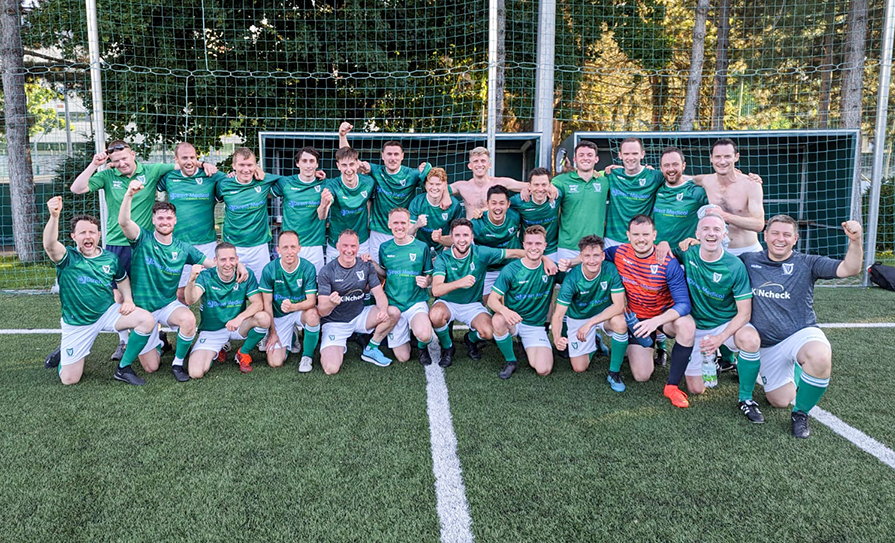
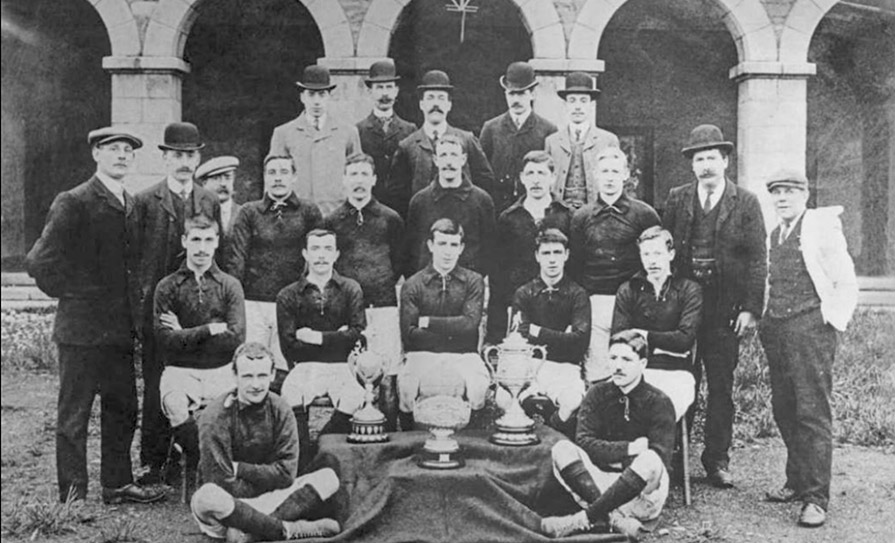
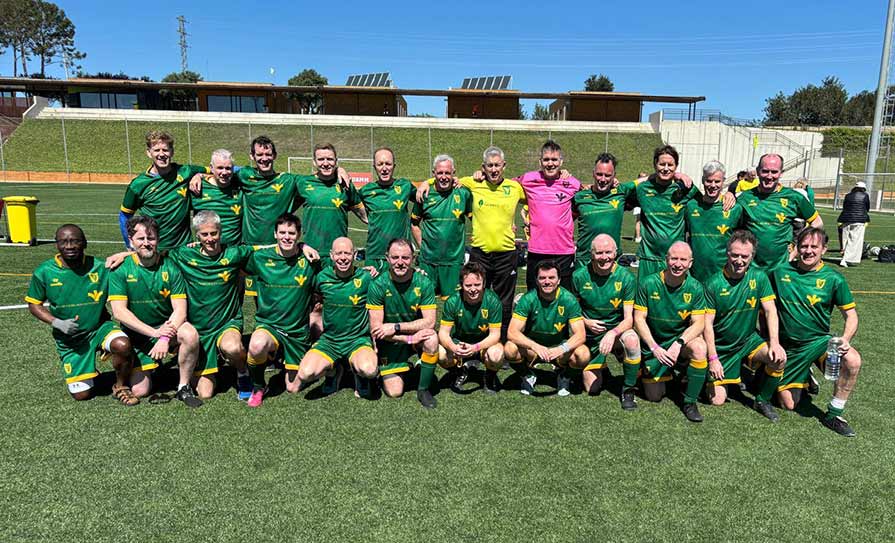
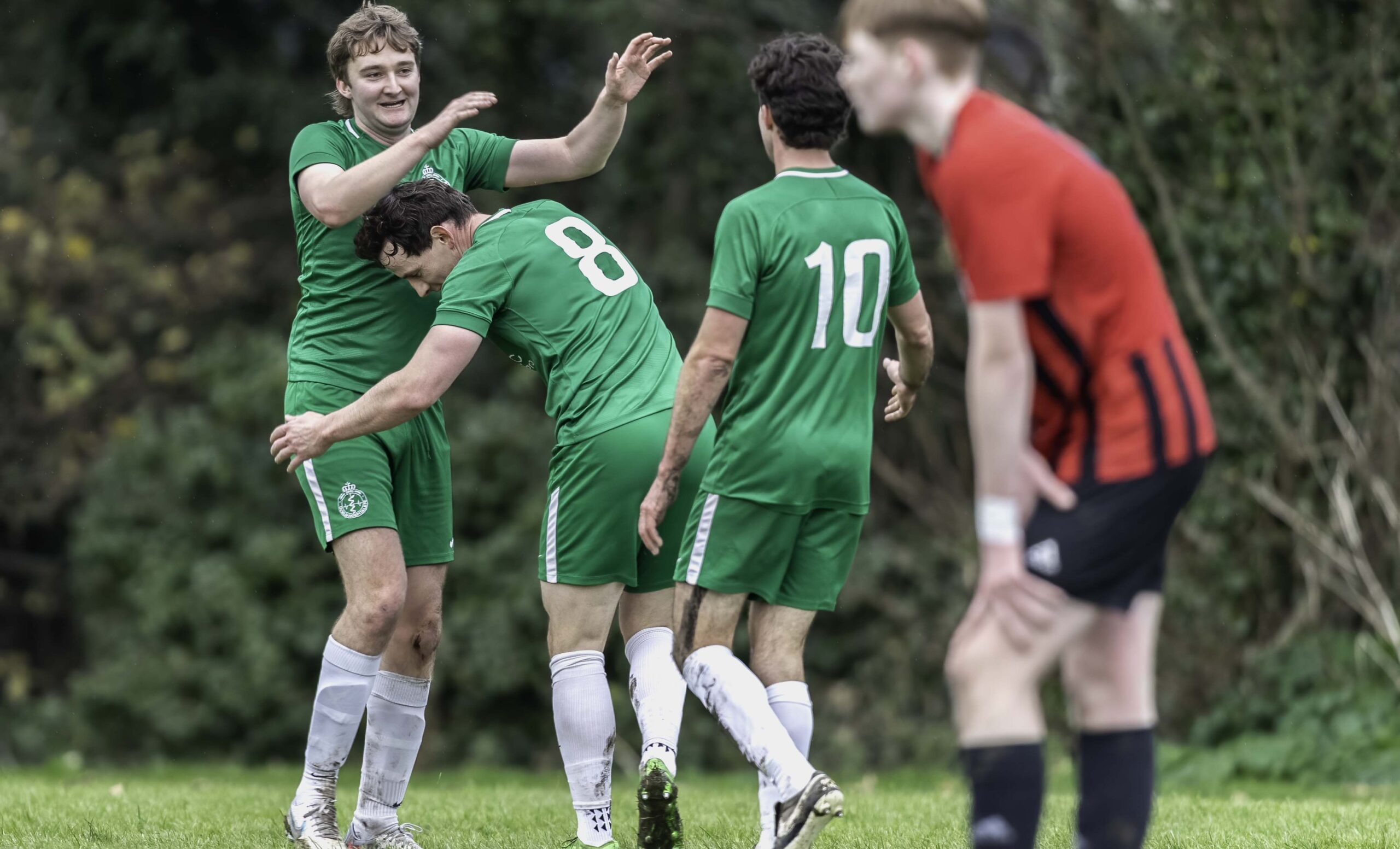
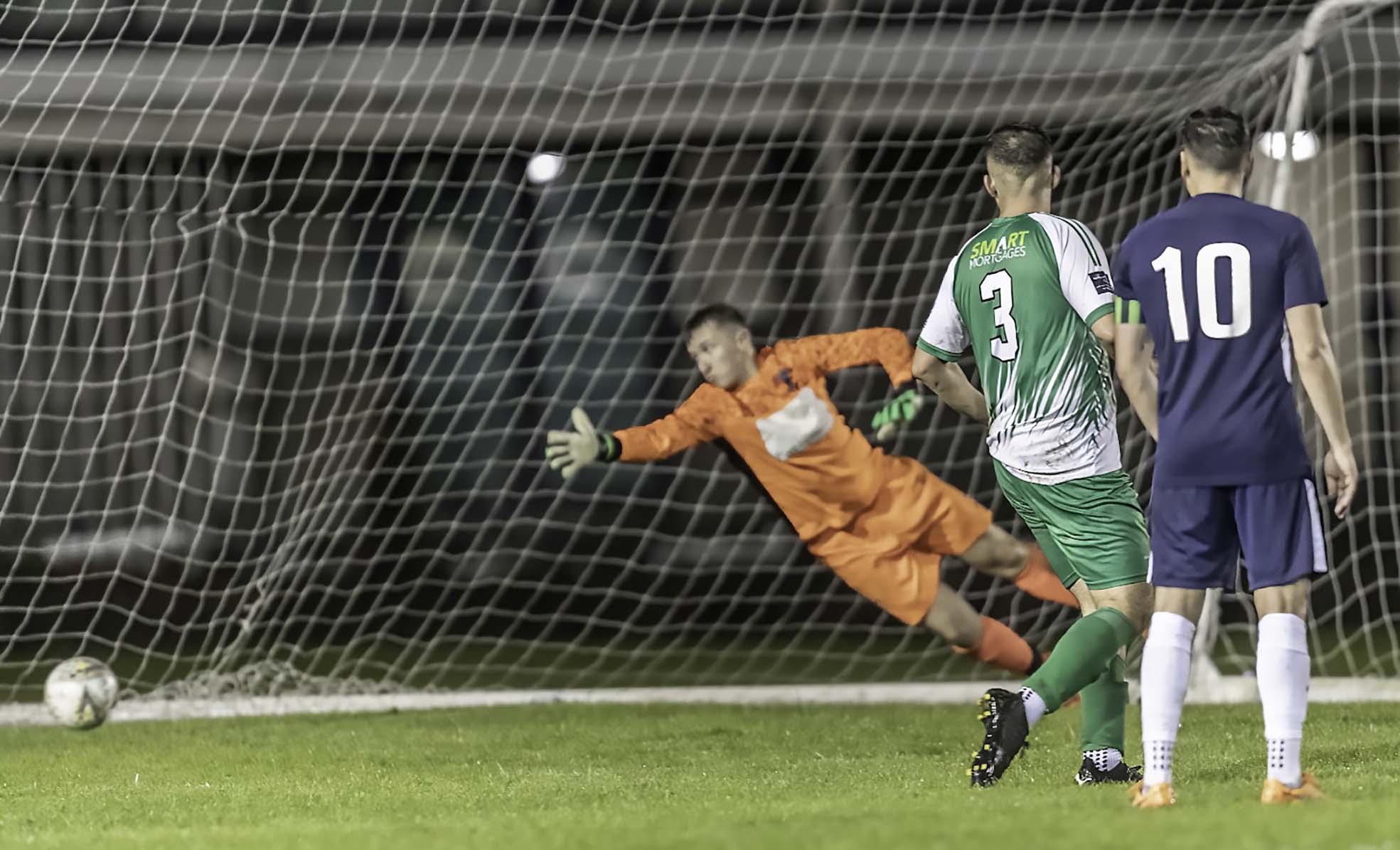
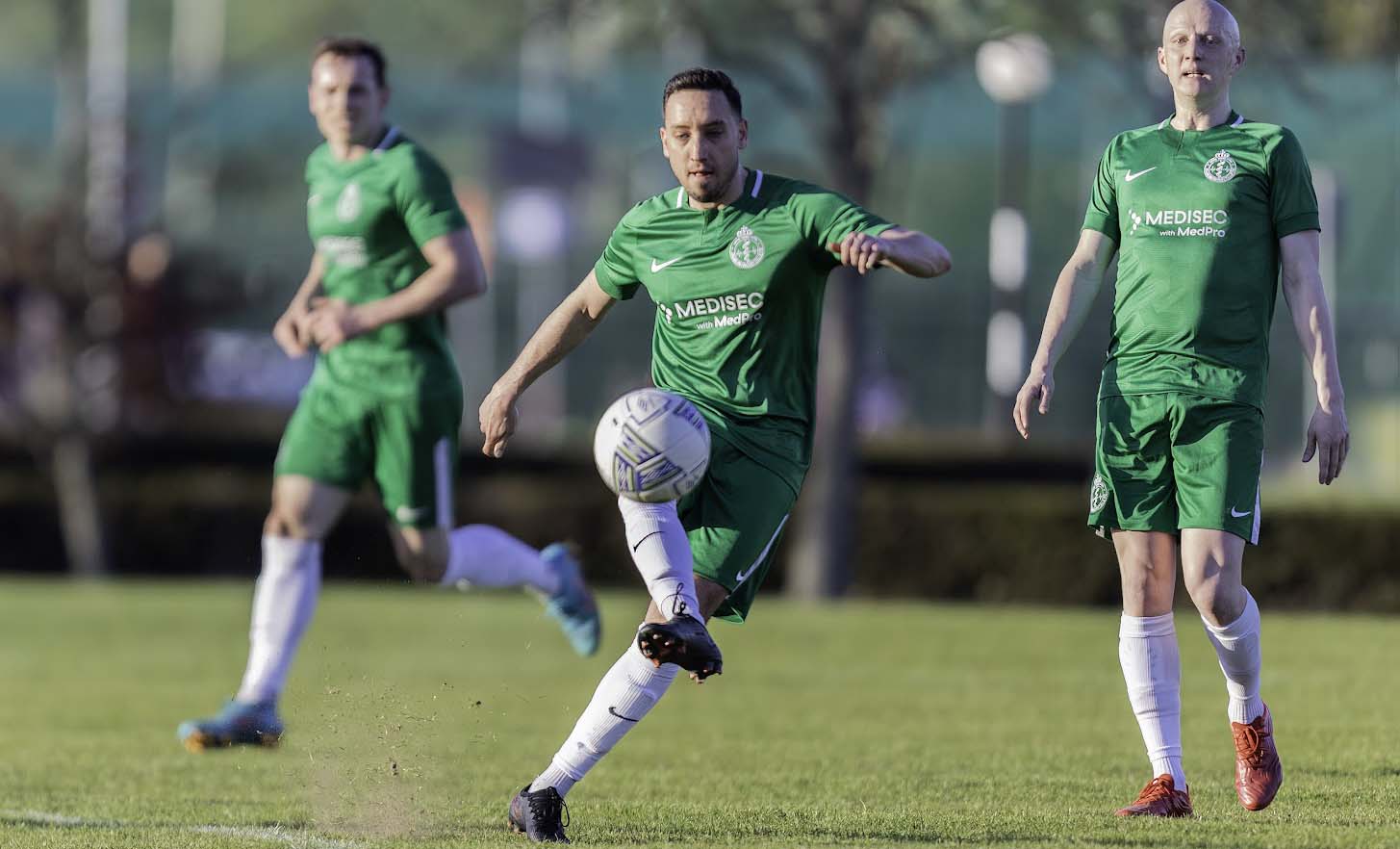


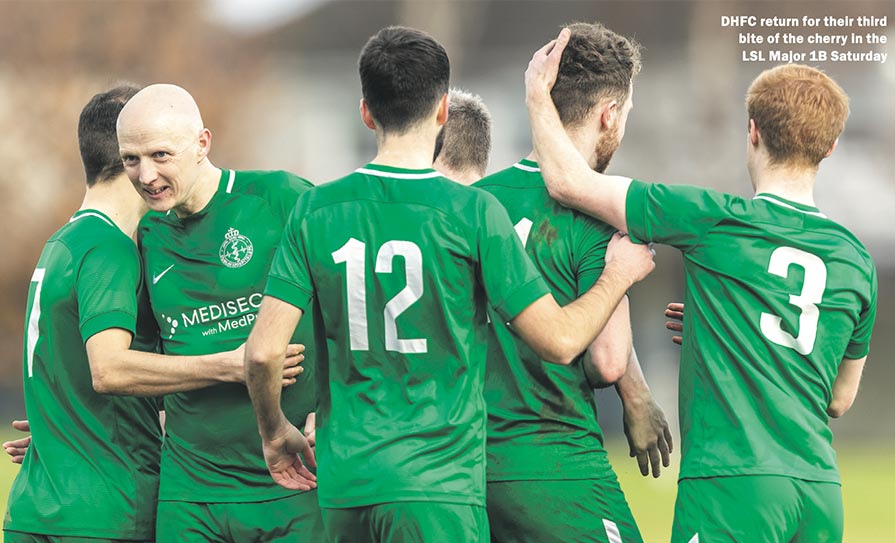




Leave a Reply
You must be logged in to post a comment.